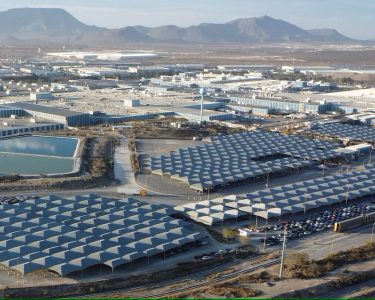
By Ntombi Mhlongo
The month of January saw the Kingdom of Eswatini recording a trade surplus of E171.5 million, after closing the year with a trade deficit of E335.1 million in December 2022.
This is reflected in the Recent Economic Development Report compiled by the Central Bank of Eswatini (CBE) for December 2022 and January 2023.
According to the report, the year 2023 opened with a higher trade surplus compared to January 2022, where the trade balance was a surplus of E18.8 million.
Exports for the month amounted to E2.675 billion, up by 18.0 per cent, month-on-month, and by 12.7 per cent, year-on-year. Imports recorded a month-on-month decline of 3.8 per cent, and a year-on-year increase of 6.3 per cent to total E2.503 billion.
It was mentioned that the country’s direction of trade shows that a bulk of the country’s trade was with the South African market, with 76.8 per cent of total exports destined for the South African market and 81.7 per cent of imports originating from the same market.
Read More: Rice price could soar again – economist warns
Exports, seasonally adjusted, were valued at E2.925 billion in January 2023. Seasonally adjusted imports amounted to E2.689 billion resulting in a monthly seasonally adjusted trade surplus of E235.8 million.
A disaggregated analysis of exports for January 2023, indicates that ‘soft drink concentrates’ sales amounted to E1.095 billion, lower, month-on-month by 19.9 per cent and 11.6 per cent lower year-on-year. Exports of ‘sugar and sugar products’ were recorded to be E517.2 million, 18.6 per cent higher when compared to December 2022 figures and 21.3 per cent higher than January 2023 figures.
Receipts from ‘textile and textile apparel’ amounted to E219.1 million, which was a mild increase of 2.3 per cent month-on-month and a higher increase of 16.9 per cent, year-on-year. Exports of ‘wood and wood articles’ were recorded at E180.9 million in January 2023, reflecting an increase of 17.3 per cent compared to December 2022, and a 6.1 per cent increase year-on-year.
A focused analysis of import figures for the month shows that imports of ‘energy products’ amounted to E475.1 million, remaining flat month-on-month and growing by 35.6 per cent, year-on-year. Imports of ‘animal and vegetable products’ were valued at E279.2 million, declining by 8.9 per cent on a month-on-month basis and increasing by 19.1 per cent on an annual basis.
‘Textile and textile apparel’ imports totalled E269.0 million, 24.5 per cent higher compared to figures for December 2022, while remaining fairly flat when compared to January 2022. Imports of ‘nuclear and electrical equipment’ amounted to E187.6 million, recording an 18.8 per cent decline, month-on-month, and a 23.4 per cent decline, year-on-year.
Read More: Farmers Bank not yet compliant – Governer Mnisi
Vehicles’ imports recorded flat growth monthly, increasing by 29.5 per cent yearly, to a total of E125.8 million in January 2023.
…Mining activity positive
The country’s mining sector has recorded positives in the past few months. Developments in mining activity were positive during the quarter that ended in September 2022.
The Recent Economic Development Report compiled by the Central Bank of Eswatini for December 2022 and January 2023 reflects that coal production increased by 3.1 per cent to 63,277 metric tonnes in the third quarter of 2022, from 61,390 metric tonnes recorded in the second quarter of 2022.
The report states that the subsector continues to benefit from the mining of a high-yield crown land since the first quarter of 2022. Quarried stone production, on the other hand, rose marginally by 0.3 per cent to 49,566 cubic metres in the quarter under review, compared to 49,441 cubic metres recorded in the previous quarter.
This increase benefitted from the currently ongoing construction projects i.e, Manzini Golf Course Interchange, pro-base road project together with the road rehabilitation projects being done around the country.
Total fuel import volumes (sourced from the Ministry of Natural Resources and Energy) depicted a decline of 5.9 per cent in November 2022, compared to a 0.7 per cent growth in October 2022. The decrease was mainly driven by the moderation of all imported fuels during the month under review.
Petrol import volumes fell by 6.0 per cent in November 2022, from a 1.1 per cent growth recorded in October 2022. Similarly, diesel import volumes further decreased by 4.2 per cent in November 2022, from a downturn of 0.1 per cent in the previous month, partially reflecting a slowdown in commercial freight activities.




